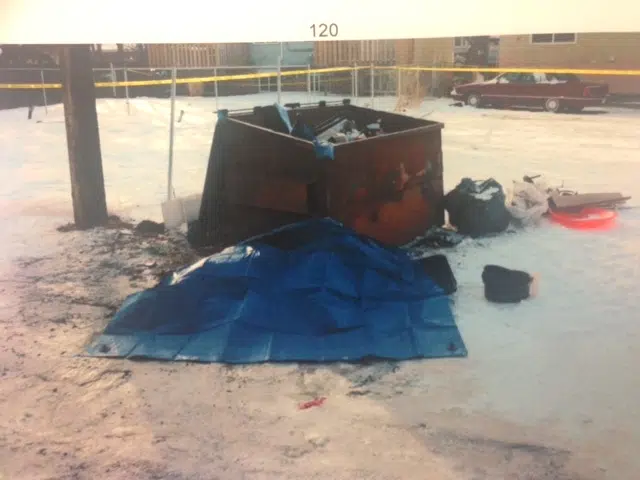
9 years for Saskatoon gang member for brutal killing
In what a provincial court judge called one of the most tragic cases he’s ever seen, a Saskatoon gang member was sentenced to nine years in prison for numerous violent crimes.
Shelby Pinnell, 20, pleaded guilty to several charges Thursday morning at Saskatoon Provincial Court, including aggravated assault, attempted murder and manslaughter.
The charges stem from five separate incidents starting in 2012 and continuing throughout Pinnell’s time in custody at the Saskatoon Correctional Centre.
Crown prosecutor Robin Ritter said Pinnell was 18 years old and “deeply entrenched” in the Terror Squad gang when he attacked Mervin Clarence McAdam, 22, at a party on Feb. 26, 2012 for “bad mouthing” the gang.
Pinnell was originally charged with second-degree murder but pleaded guilty to the lesser charge of manslaughter.
Court heard he punched McAdam hard in the face, but other people started stomping him while he was on the ground. The victim tried to run away through a back alley but was attacked again outside.
A coroner’s report showed McAdam died from either blunt force trauma or strangulation before his body was set on fire and thrown into a black garbage bin in the 200 block of Avenue S South. Terror Squad graffiti was found on the garage door of the house McAdam had ran to, Ritter said.
Defence lawyer Nicholas Stooshinoff said there’s no evidence to show Pinnell “delivered the fatal blow,” or that he was involved with disposing McAdam’s body in the garbage bin. A co-accused man, Bobby Hannah, was sentenced to 11 years last April after pleading guilty to manslaughter and offering an indignity to human remains.
Two months later, Pinnell stabbed an acquaintance in the abdomen at a party.


